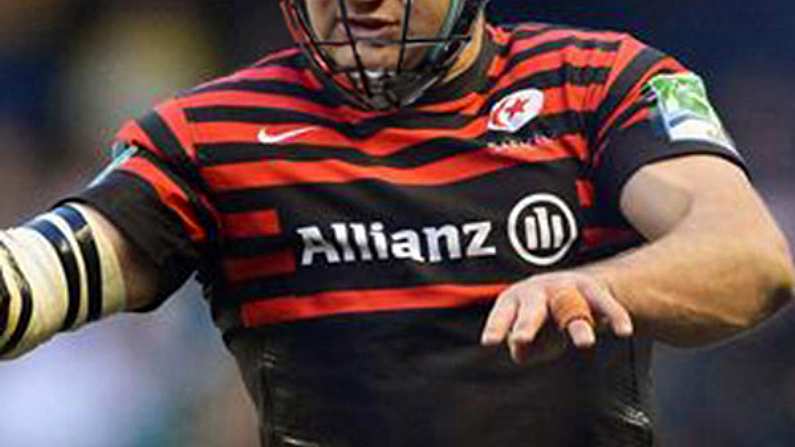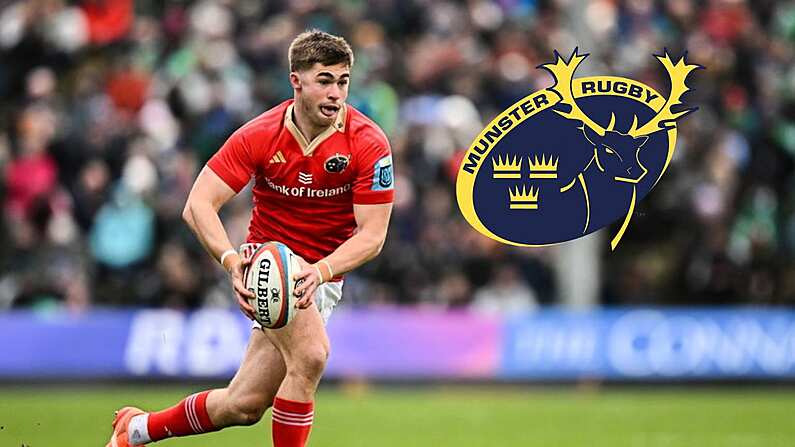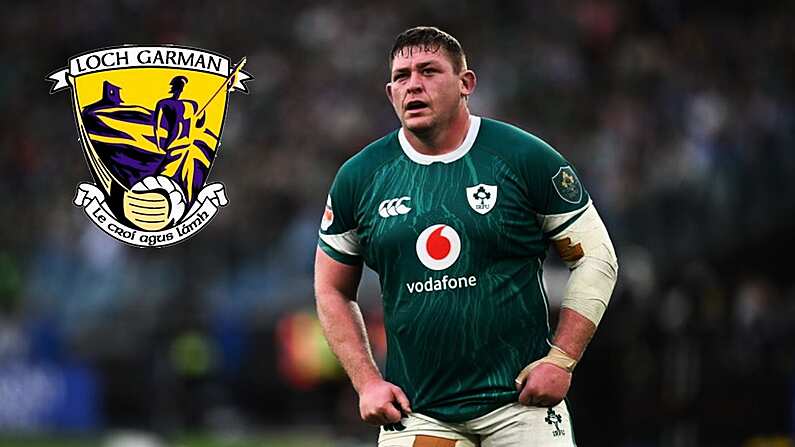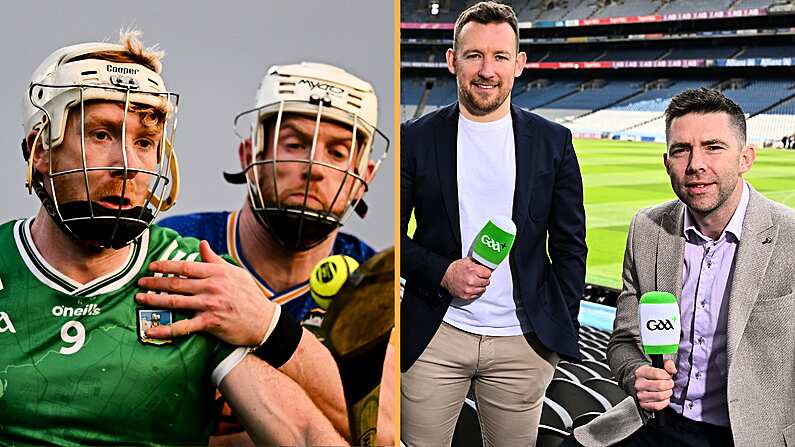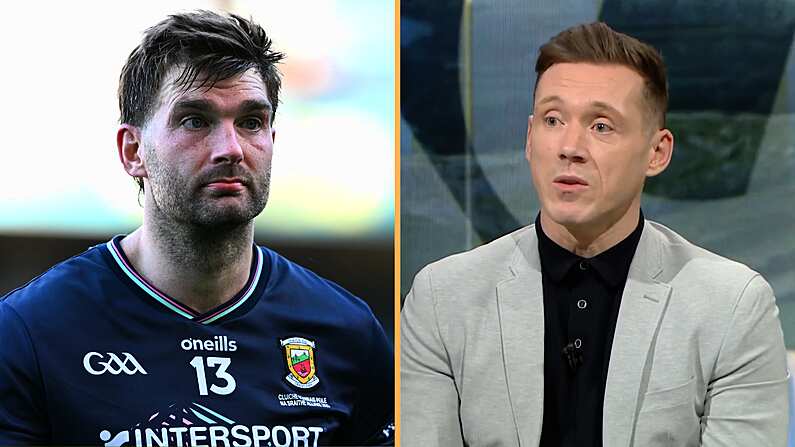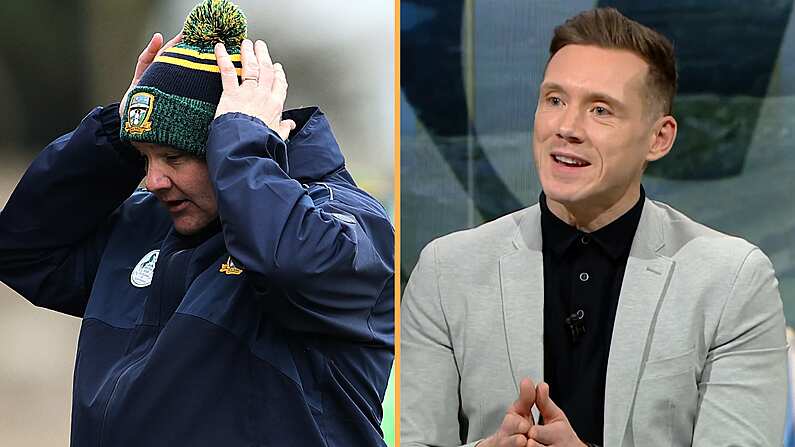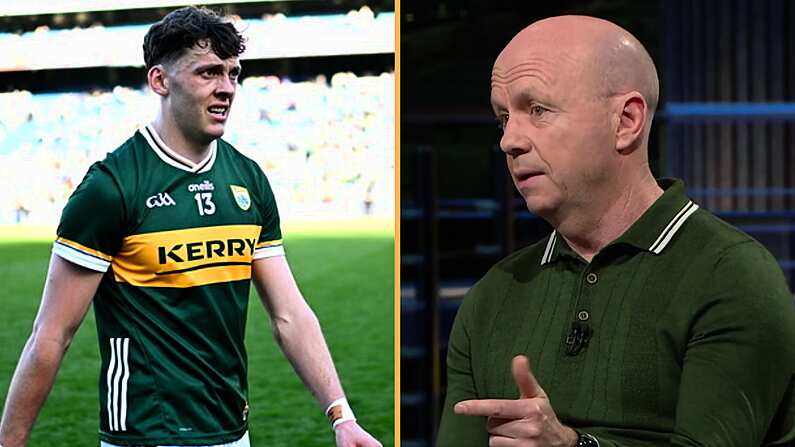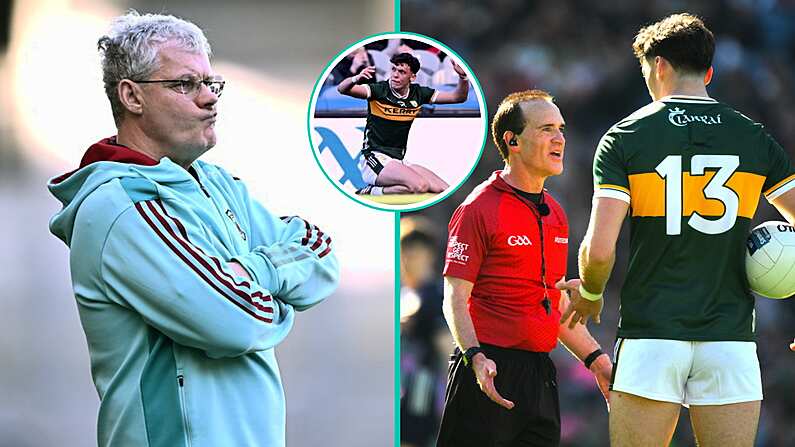After the phenomenal, ahem... "success" of the International rules, other sports have began to gaze jealously at Gaelic Football and Aussie Rules and see if there was any way of enlivening their sports by creating new hybrid games. Two sports who happened to be doing this simultaneously were the ancient game of hurling and the comparatively modern game of rugby. Remembering that Eamon De Valera was a lover of both games, they decided to ditch mutual suspicion and team up.
Phillip Browne and Liam O'Neill held a historic meeting via Skype with O'Neill and his officials sitting in Hayes Hotel in Thurles and Browne, Wigglesworth and co sitting in the Four Seasons in Ballsbridge. From these humble beginnings a glorious game sprang...
The rules
- Both teams carry hurls onto the pitch, aiming to hit a small, ovular shaped sliotar over the bar or into the net, or carry it over the end-line for a try. An over is worth three, try is worth five points and a goal is worth six.
- The scrums/schemozzles are one of the games most spectacular set pieces. The scrum sets up as it does in rugby, except the referee, instead of arranging everything carefully and methodically, throws the ball in hurriedly and often without warning, with the whistle dangling from his mouth like a fag, sometimes opting to turn around and throw the ball in the opposite direction. Every one in the scrum, save the hookers, swing the hurl with their free hand when the ball is put in.
- The tackle is as it is in rugby, but depending on the ref, you will sometimes be allowed pull across your man's body. A crucial part of this game is to remember its a manly affair and you can't be blowing for everything.
- You're only allowed pass the ball backwards unless you're having a pop at goal.
Saracens took on Clare in the Duggan Park in Ballinasloe earlier in the year. Here's our match report from that groundbreaking contest:
In a fiesty and, at times, incredibly violent affair, Saracens and Clare shared the spoils in the Duggan Park in the inaugural Hurling/Rugby compromised rules game.
There was fevered anticipation beforehand with both sets of supporters mingling jovially before the Archbishop of Cashel Dermot Clifford threw in the ball.
Discipline was a problem from the outset.
Davy's constant barracking of the referee startled the rugby lads, who kept on addressing both Wayne Barnes and Brian Gavin as "sir" throughout the match. Barnes sent Davy to the stands for accusing him of bias and repeated moaning. Gavin, meanwhile, was so shocked at being addressed in this way, that he initially believed he was being sarcastically mocked and responded by sin-binning Owen Farrell.
Early on, Clare corner forward and teen idol Shane O'Donnell was put out of action by a crippling late tackle from Chris Ashton which went unpunished by Barnes.
The "forward pass" rule nullified Podge Collins in his role his centre forward linkman but both Brendan Bugler and Pat Donnellan were majestic in the lineout where Saracens hooker Schalk Brits really struggled to find the target from his sideline cuts.
Clare led the game well at half-time and Saracens would have received some stern warnings at the break before the Archbishop of Canterbury Justin Welby threw the ball in to restart the game.
There were an abundance of late pulls as the Saracens availed of their new hurls to pull high and hard, Junior C style across the Clare lads bursting out. The game at times resembled the Battle of Falkirk as filmed by Mel Gibson in the 1995 blockbuster Braveheart.
Saracens thought they had the game lost but were very gratified when Gavin allowed them another play even though the clock had passed 80 minutes. Davy's players can only have themselves to blame for throwing the game away through rampant indiscipline and getting on the wrong side of Barnes. Irish sides maintained their appalling record with Barnes refereeing, a fact darkly, and rather unsubtly, hinted at by Davy Fitzgerald afterwards.
How they wished Loughrea's Johnny Maher, one of the compromised game's most legendary exponents, was on the pitch rather than sitting in the stand.

